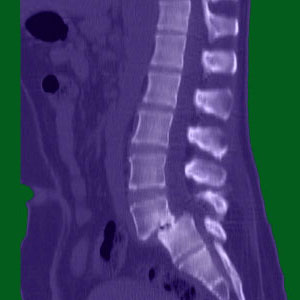
Should you consult with a spondylolisthesis specialist? If you have access to one, seeing a specialist is always a good idea and can improve diagnostic accuracy and treatment results. However, which type of doctor is best suited to be called a specialist in spinal listhesis conditions and which should you choose as your main caregiver?
Specialists might come from various fields, including chiropractic, orthopedics, neurology and physical therapy. Since chiropractors are limited in how they can treat spondylolisthesis, we will focus on medical listhesis specialists for the remainder of this essay.
This discussion provides information on choosing a specialist concerning a diagnosis of spondylolisthesis. We will explore how different types of doctors each bring special skills to the table and make recommendations on the optimal specialist for vertebral listhesis.
Orthopedist Listhesis Specialist
Orthopedists are experts in the musculoskeletal system, including the spine. This makes them uniquely qualified to diagnose and treat spondylolisthesis at an expert level. Orthopedists are often involved in listhesis cases and are typically recommended by primary care physicians who suspect a spinal source of symptoms for their patients.
Orthopedists might be surgeons (orthopedic surgeons) or might be specialists in nonsurgical care. Both types of doctors can be useful for listhesis patients, but surgical care providers can certainly provide the greatest diversity of treatment options, some of which might be necessary for severe spondylolisthesis gradings.
Statistics show that patients who choose orthopedists as their primary care providers for spondylolisthesis tend to have corrective surgery more often than patients who choose neurologists or physical therapists to manage their care.
Neurologist Spondylolisthesis Specialist
Neurologists often specialize in the central nervous system, including the functionality of the spinal cord and nerves. Therefore, for patients who are suffering from back, neck or appendage pain that is suspected of coming from their listhesis, neurologists are a logical choice of care provider.
In similar respect to orthopedists, neurologists are often surgeons (neurosurgeons), while other doctors are limited to nonsurgical diagnosis and treatment of nerve disorders. Finding a neurosurgeon will provide a patient more treatment opportunities, but might also increase their chances of undergoing surgery.
We feel that neurologists are best suited to manage most listhesis profiles, since the condition is not inherently symptomatic. If symptoms do exist, neurologists have the best chance of accurately linking them to a spinal source if related, or a nonspinal source, if incidental.
Physical Therapist Spondylolisthesis Specialist
Some physical therapists also focus on diagnosing and treating spondylolisthesis. This is logical, given that most versions of the condition can often be managed conservatively and do frequently involve postural and gait-related abnormalities. A physical therapist that specializes in listhesis also often centers their practice on general back and neck pain issues, but this is not a rule that is written in stone.
Most cases of minor listhesis do not require any treatment whatsoever. Most moderate cases can be treated without surgery. It is these cases that benefit most from physical therapy, since PT care providers are not qualified or capable of providing surgical services required by some severe cases of spondylolisthesis.
PTs will use a combination of exercise and stretching to strengthen the back muscles in order to build stability in the dorsal region. This is important to prevent degeneration of the vertebral migration in some patients and decrease the likelihood of suffering traumatic injury in virtually all patients.
Spondylolisthesis > Spondylolisthesis Diagnosis > Spondylolisthesis Specialist



